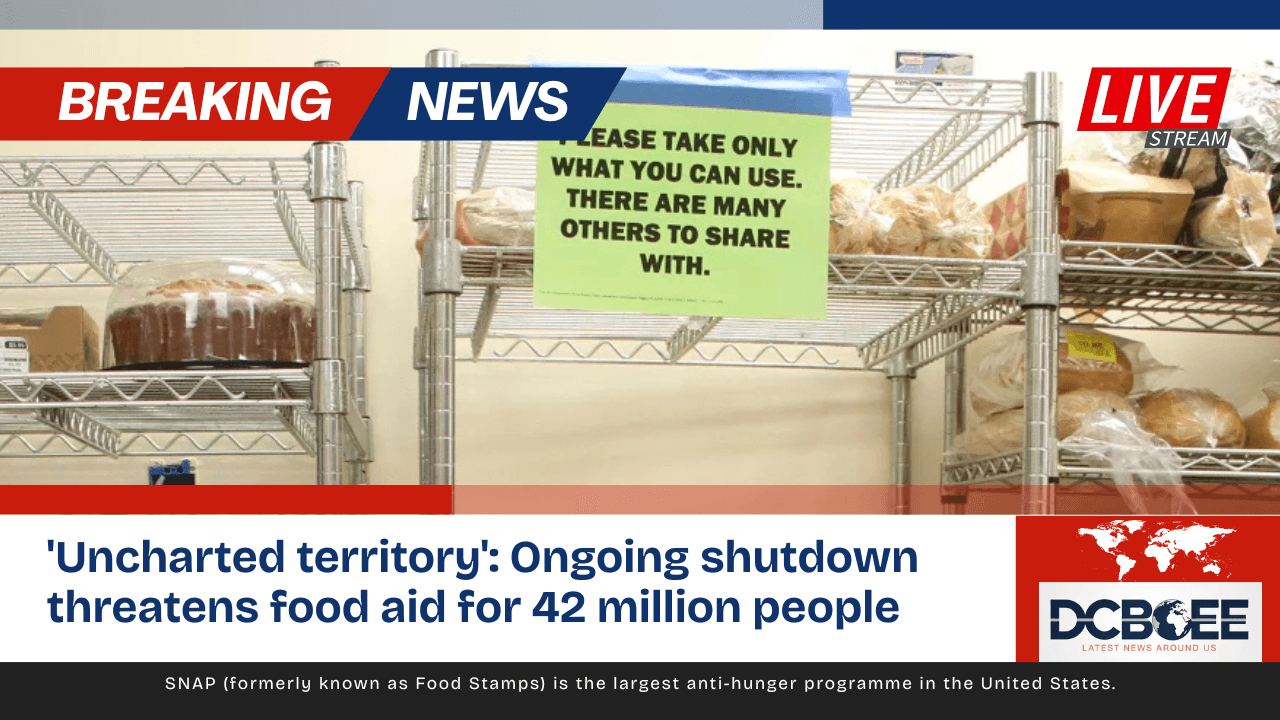
'Uncharted territory': Ongoing shutdown threatens food aid for 42 million people
The federal shutdown could mean that in just a little over a week nearly 42 millions Americans who receive federal food assistance will lose their benefits.
Approximately 1 in 8 U.S. citizens receives an average of $187 per month via the Supplemental Food Assistance Program (SNAP). Shari Jablonowski is one of these people. The 66-year old widow who lives just outside Pittsburgh is preparing to lose $291 of food aid that her disabled nephew receives each month. She raised two nieces and her adult nephew as if they were her own. Her budget is already tight, even without the looming crisis.
She says, “I could not pay for anything this month, whether it was gas or electricity.” She paid for her car’s monthly payment instead, as she needed to drive to doctor’s appointments, to visit her mother and to take her niece to work.
2025 Government Shutdown
The federal government remains shut down. What does this mean for your community?
What happens if her nephew’s food assistance disappears in November She says, “I’m very worried that I won’t have heat.” This would ruin Thanksgiving.
SNAP (formerly known as Food Stamps) is the largest anti-hunger programme in the United States.
2025 Government Shutdown
It feels awful. Families of federal workers tighten their belts during the shutdown
Joel Berg, CEO at Hunger Free America says that the vast majority of food stamp recipients are children, workers, older Americans and people with disabilities. If the SNAP program is shut down, Americans will suffer the worst mass hunger since the Great Depression.
SNAP is usually the only direct income that most people receive. Berg points out that cash welfare has been dramatically reduced since the 1990s and Medicaid payments are made directly to hospitals, doctors and drug companies. The SNAP program is the only thing that helps low-income and moderate-income Americans pay for their monthly basic expenses. He says that the SNAP program is vital not only for fighting hunger but also to keep tens and millions of Americans afloat every month.
is also in danger of running out of funds for a nutrition program that benefits 7 million women who are pregnant or new parents. The Trump administration used $300 million of tariff funds in order to keep the Special Supplemental Nutrition Program (WIC) for Women, Infants and Children afloat. However, it is expected that this money will run out within weeks. Some states claim they will fill the funding gap but not all of them have the resources to do so.
USDA is under pressure to continue funding SNAP
Department of Agriculture Secretary Brooke Rollins warned that SNAP funds will run out by Nov. 1. USDA told states to put payments on hold until further notice.
The agency is blaming Democrats who claim they will not vote to end shutdown until Republicans agree on extending tax credits for Affordable Care Act in order to prevent health insurance premiums skyrocketing.
2025 Government Shutdown
Capitol Police, who are not paid during the shutdown, remind lawmakers every day of the pain
In a NPR statement, a USDA spokesperson stated that “Senate Democrats are nearing a turning point.” Continue to demand healthcare for illegals, or reopen government so that mothers, babies and the most vulnerable can receive WIC and SNAP allocations on time.
Undocumented immigrants do not qualify under the Affordable Care Act.
USDA should continue funding SNAP, say food aid advocates. Katie Bergh is a senior analyst at Center on Budget and Policy Priorities. The nonpartisan research and policy organization says that SNAP has millions of dollars in reserves. She says that wouldn’t cover all of the amount but the agency can legally transfer more funds as it has done with the WIC nutrition program. Bergh argues that USDA is legally required to fund SNAP because it’s a entitlement program.
The Department of Justice did not reply to a NPR question about whether such a law exists.
Food benefits in the United States date back to Great Depression. Bergh says that if funding does expire next month, “we would be in unknown territory.”
Some SNAP recipients could face a double whammy. Many will have to comply with work requirements linked to the benefit starting November 1, the same date their benefits may end.
Over the next 10 years, the work requirements passed by the Republican-controlled Congress are expected to force 2.4 millions people out of the program.
States and food banks scramble to help
The federal government pays out $8 billion per month in SNAP payments. The money is added automatically to a debit card, which recipients can use for groceries, farmers’ markets, and other places. Berg, with Hunger Free America, claims that more than 250.000 food retailers rely on this income.
The government has not yet announced whether it will act to stop the SNAP program from expiring. If the government decides to act, but does not do so until the very last moment, it will take several days for the benefits to be distributed to the states and transferred to the people’s cards.
While states prepare for an increase of demand at Food Banks. Virginia declared a state of emergency, and announced that it would provide food assistance. Colorado’s Governor encouraged people to donate food banks. California announced that it would deploy National Guard troops to assist food banks.
But some advocates argue that even if food charities were expanded, they would not be able to compensate for the billions of dollars in federal funding lost.
Shari Jablonowski is struggling to cope with the huge hole in her budget. She visits food pantries already and will increase this. She says, “There’s nothing I could do to earn money.” “I am not in the best of health.”
Source: https://www.npr.org/2025/10/24/nx-s1-5581354/federal-shutdown-snap-wic-food-aid-ebt-hunger
See Also: Trump says federal deployment to San Francisco called off after conversation with Mayor

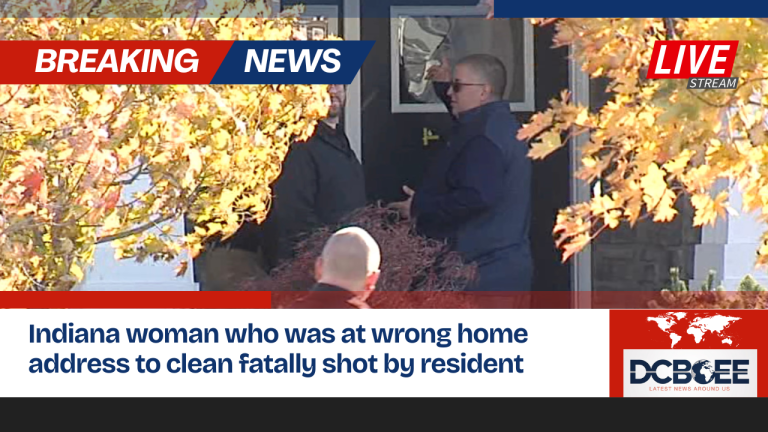
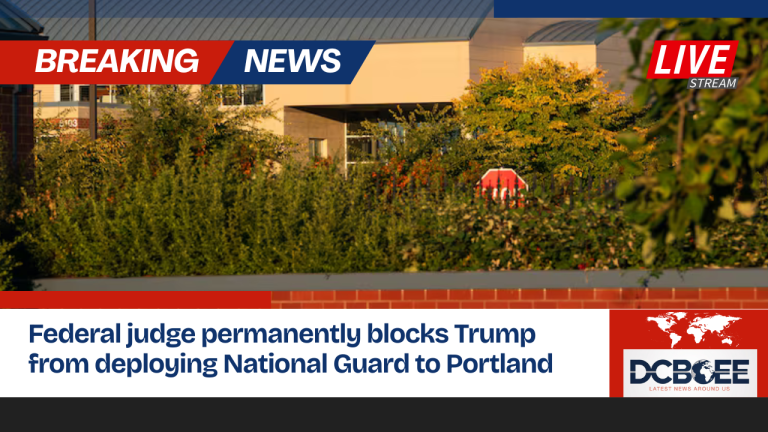
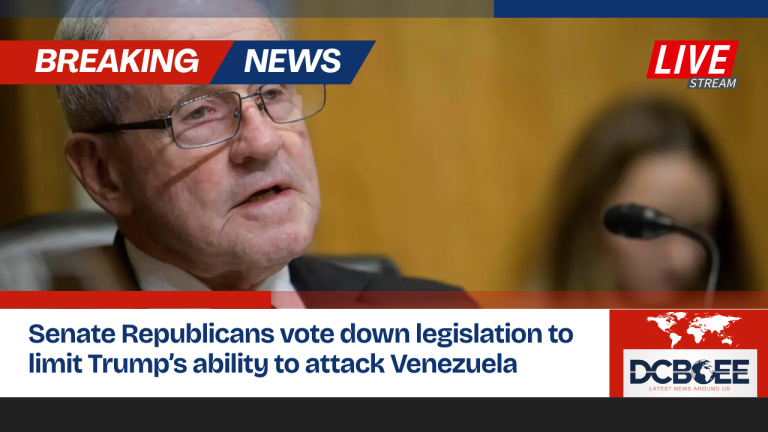
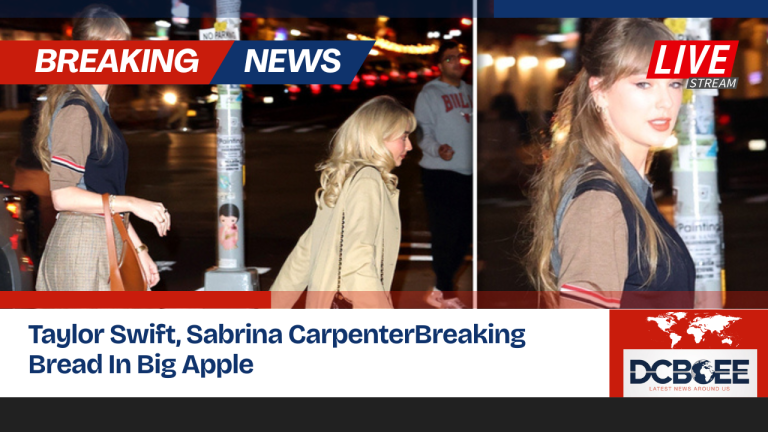

![My biggest AirPods Pro 3 problem has improved, how about you? [Poll]](https://dcboee.us/wp-content/uploads/2025/11/President-Faces-Impeachment-Nation-Braces-for-Political-Turmoil-67-768x432.png)
